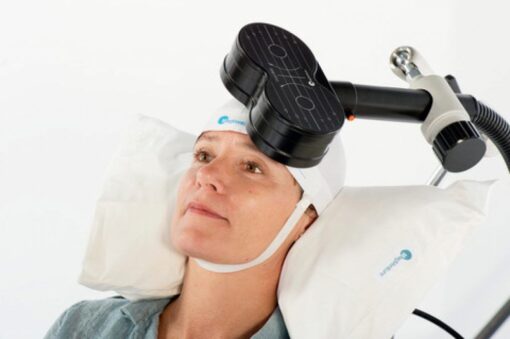rTMS depression | Repetitive Transcranial Magnetic Stimulation for Treating Depression
Depression is classified as a mental disorder affecting many individuals, leading to changes in their emotions, thoughts, and physical behaviors.
Initially, doctors prescribe medications and psychotherapies for treatment, but when these interventions are ineffective, rTMS depression is used as an alternative therapy.
rTMS depression:
Depression is a common mental disorder treated with antidepressant medications and psychotherapy sessions. However, in some cases, these approaches are ineffective for certain patients. Hence, rTMS depression is employed as an alternative therapy.
This therapeutic technique is a safe procedure that doesn’t require any surgical intervention or anesthesia.
It works by activating neural cells in the brain regions affected by the disorder, reducing depression and restoring a natural balance in brain function.
Moreover, rTMS is not only used for treating depression but also for treating various other mental and neurological disorders such as obsessive-compulsive disorder, schizophrenia, Alzheimer’s, and other similar conditions.
The main benefit of rTMS therapy:
Despite being used to treat various mental and neurological disorders, with approval from the U.S. Food and Drug Administration, rTMS is primarily employed for treating severe depression with a high success rate.
It utilizes magnetic fields to stimulate brain regions associated with depression.
This is achieved by generating electromagnetic fields that induce electrical currents in the brain, making neural cells more active and helping alleviate depression symptoms such as lack of motivation and difficulty concentrating.
Therefore, the main benefit of rTMS therapy lies in its ability to improve patients’ mood and effectively treat severe depression.
Patients typically need to attend 4 to 5 sessions per week, committing to the treatment to program neural pathways in the brain, preventing depression and ensuring positive outcomes.
rTMS for postpartum:
According to Dr Ahmed Missiry, some women experience postpartum depression after giving birth, and it can persist for months or longer, significantly affecting both the mother and the child.
Since new mothers prefer to avoid medication during and after pregnancy, rTMS therapy is considered the best alternative as it is a safe and effective treatment.
Is rTMS therapy suitable for children and teenagers?
rTMS treatment is suitable for children and teenagers, proven to be safe for them according to scientific studies, especially for those aged between 13 and 21 years.
The treatment also does not cause any negative effects on cognition and may improve verbal memory in teenagers.
Benefits of rTMS
– Safe treatment that does not require anesthesia.
– Non-invasive, eliminating the need for surgery.
– Patients can undergo treatment on an outpatient basis.
– FDA-approved.
– Minimal side effects.
– Patients can resume daily activities after sessions.
– Reduces anxiety and improves mood.
– Enhances cognitive and executive functions.
– Increases motivation and promotes stable mental states.
– Improves sleep and appetite.
Negatives of rTMS:
– Mild side effects may occur, such as facial twitching and headaches.
– The treatment is time-consuming, requiring 20-30 daily sessions over 4-6 weeks.
– The therapy is not accessible to many depression patients due to its high cost.
– Limited funding from the National Health Service.
In conclusion, it’s essential for the patient to be aware of the benefits and negatives of rTMS treatment before starting. It may not be suitable for all patients, so an evaluation by a mental health doctor is necessary before using the treatment.
References

